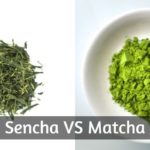Are you a big fan of lemon tea ? Is it something you love to drink every day ? Then you might be wondering about the caffeine level in your beloved lemon tea.
Don't worry, I've got your covered and I'm going to discuss how much caffeine there is, and why.
So go grab your favorite cuppa, and let's sit down.

Table of Contents
So does lemon tea have any caffeine ?
It depends on what your lemon tea is based on.
If you're drinking pure lemon tea, made of 100% pure lemon, and nothing else, then no it contains no caffeine.
But if you're drinking black tea infused with lemon, which is often the case, then yes it does have caffeine because of the black tea.
Exactly how much caffeine is in lemon black tea ? About 42 mg/8 fl oz so that's about half the caffeine in a shot of espresso.
This is something that's not exactly set in stone, as caffeine levels in tea vary according to steeping times and the strength of each individual tea leaf. I'll get into more detail in a few paragraphs.
First, let's talk about the pure lemon tea.
Lemon tea with 100% just lemon has no caffeine
When you drink lemon tea made out of pure lemon, there is no caffeine to speak of. This is because lemons have no caffeine naturally.
If you ever find a pure lemon tea with caffeine, the caffeine has been added separately during the production and packaging process.
But if you're got a bunch of lemons just lying around the house, and you decide to make tea out of them, there's no caffeine. None.
How do you go about making lemon tea from scratch ?
You'll be needing :
- lemons rinds, as many as you want, depending on how much tea you'd like to make
- hot water, 80-90 C/176-194 F
- one big pot to steep everything in
You'll need the lemon rinds to brew tea from, as the actual slices with the pulp inside won't exactly help the general flavor.
This is a quick baking lesson as well. If you want flavor, add the rind and essential oil. If you want zing and to lighten up a strong taste, add the juice.
So peel/cut the lemons and leave only the rinds to use. Make sure the lemons are very well cleaned beforehand, since they've been handled by many hands during shipping.
For 34 fl oz of tea, I recommend you use the rind of 2 lemons. Now, this is according to how strong you want your tea. Start off with 2, and see how you like it.
Two lemons will be be enough to give the tea a strong enough lemon taste, but not become overpowering. If you do find it's too strong for you (or too weak), adjust accordingly.
Now, after the water has reached the desired temp, turn the heat off. Add the lemon rinds, and put a lid on the pot to keep everything nice and steamy.
Let the rinds steep for at least 5 minutes.
Once done, you can test the brew with a teaspoon, to see if you're happy with the way it came out. If it tastes a bit weak, leave it for another 2-3 minutes, or add more lemon rind.
When the tea is finally done, you can strain it into whichever container you want to keep it in.
If you've got any particular flavoring you'd like to add to your lemon tea, you can add while the tea is steeping.
(If you like this article so far, you can pin it to your Pinterest board by clicking the image below. The article continues after the image.)
Black tea with lemon added does have caffeine
What about black tea with lemon ?
In the U.S. at least, this is the most common lemon tea. Even if it says 'lemon tea', and one would think it contains just lemon, in truth it's black tea with lemon added.
Whether it's actual lemon rind pieces, or the leaves have been infused with lemon essential oil, it's still black tea.
In some cases you might still feel the taste and flavor of black tea under all the lemon.
Which means it's still caffeinated, even if it says decaf.
Decaf can only remove so much caffeine, and as such your tea will still contain a very small amount (less than 1%).
Regular black tea does have some caffeine in it, but its level will fluctuate wildly. More on that here.
This means that the longer you let a tea steep, the more caffeine it will release.
And black tea can even steep for 5 minutes, which means it will be able to give you pretty much all the caffeine its leaves contain.
But that's the problem. How much caffeine do those leaves contain ?
That's something that varies from tea farm to tea farm, and each tea brand works with different farms, or maybe they have their own farm.
And each farm is in certain countries, which may or may not have the absolute best climate for growing tea. Which again will affect the caffeine content.
What I'm trying to say is that knowing exactly how much caffeine is in your tea is ridiculously hard, unless you test each cup of tea in particular.
If you want a general guess about how much caffeine is in black tea, it's usually around 40 mg for a 8 fl oz drink. Do keep in mind that the actual value found in your cup of tea might be different.
Are there any side effects of drinking pure lemon tea ?
Unless you're drinking a large amount of lemon tea (over 5 cups per day), there are no severe side effects of pure lemon tea.
What might happen though is that your stomach might be a bit irritated by the excess citrus oil, which can trigger stomach aches, and heartburn.
This is one reason you shouldn't be drinking pure lemon tea on an empty stomach, as it can upset the stomach for those who know they're a bit sensitive.
For example those with stomach ulcers, or gastritis, possibly even IBS should be very careful with lemon tea. Or possibly avoid it altogether.
But for most people there are no severe side effects. The vitamin C in the lemon will be mostly lost, since heat destroys vitamins fast.
Final thoughts
I hope I managed to help you out, whether you were asking about pure lemon tea (herbal), or black tea with lemon.
Whichever case it is, lemon is always a good scent and taste to help you relax and recharge your batteries.
Pure lemon tea was one of my favorites when I was growing up, though I used to have it with lots of sugar, so maybe that had something to do with it.
If you want to know more about coffee or tea, feel free to check the related articles below. Who knows what else you might find ?





